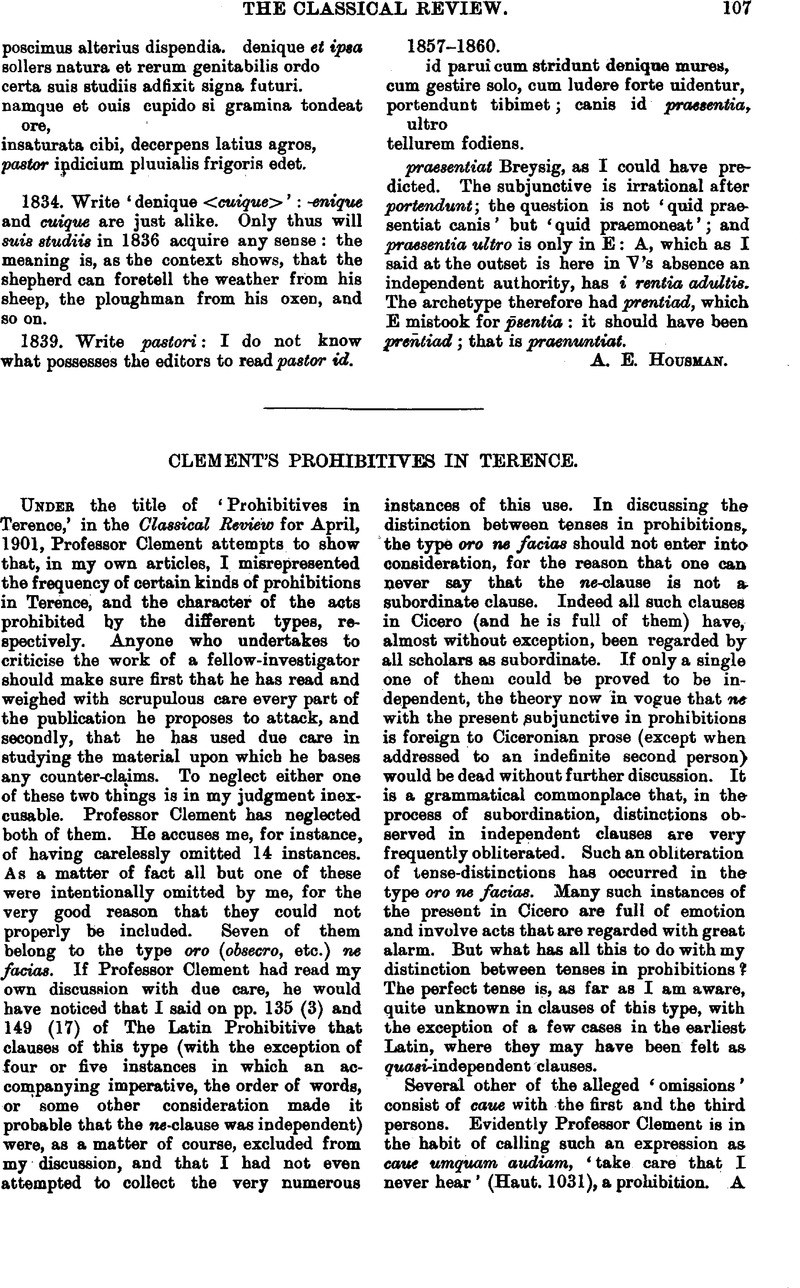No CrossRef data available.
Article contents
Clement's Prohibitives in Terence
Published online by Cambridge University Press: 27 October 2009
Abstract

- Type
- Original Contributions
- Information
- Copyright
- Copyright © The Classical Association 1902
References
page 108 note 1 Even in the third person, only one author, so far as I know, ever used the perfect subjunctive with caue, and he used it only once in an intensely emotional passage, where the expression involved the escape of a supposed lunatic (Plaut. Men. 994).
page 108 note 2 One should be careful not to confuse with prohibitions such expressious as Most. 966 uide ne quopiam deuorteris= ‘I suspect you have been dropping in somewhere,’ lit. ‘see lest you have been dropping in,’ &c. ; see Gilderaleeve-Lodge Grammar, § 548, 4.
page 108 note 3 See the review of his article in the American Journal of Philolgy, xxii, 1.
page 109 note 1 I have classified this instance correctly in my Studies, p. 216, also in my article on ‘A Neglected Use of the Latin Subjunctive’ in the Classical Review, xii. p. 203.
page 109 note 2 See my Studies, pp. 213 ff.
page 109 note 3 Haut. 302, 745, 939, Eun. 76, 212, 278, 388, 751, 786, 988, And. 205, 704, 706, 980, Phorm. 419, 993, Ad. 22, 170.


